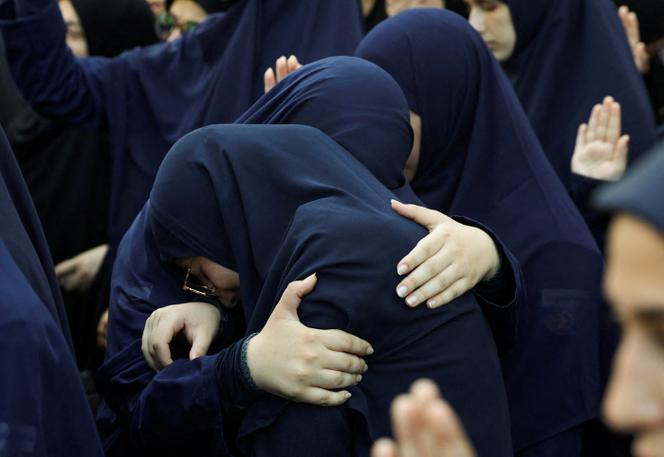


Hassan Fadlallah, 10, and his sister Amira, 6, smile side by side in a photograph that now belongs to the past. The two children perished in the Israeli attack on Tuesday, July 30, on the southern suburbs of Beirut, which targeted one of Lebanon-based Hezbollah's most senior military officers, Fouad Shukur. His death was confirmed by Tehran's allied Shiite movement, and his funeral was held on Thursday on the outskirts of the Lebanese capital.
On Wednesday, extended family, friends of relatives and Hezbollah supporters gathered to bid farewell to the children in the Ghobeiry neighborhood adjacent to Haret Hreik, where the strike took place, a few days after the attack on Majdal Shams, on the Israeli-occupied Golan Heights, where 12 children, aged between 10 and 16, were killed.
Amira and Hassan's coffins were carried by Hezbollah scouts, a portrait of Ayatollah Khomeini stapled to their uniforms. The children's father, Sabri, was not there: He was wounded. The eldest brother, Ali, 12, who suffered serious burns, was being treated at Geitaoui Hospital in Beirut. Mariam, the mother, 38, could barely stand. Relatives supported her.
When the bodies of the little ones were found by rescue workers, after several hours under the rubble, "Hassouna [short for Hassan] was hugging Amira," said the housewife, whose husband is an engineer. The Fadlallah family lives in Dohat Al-Hoss, a town south of the capital. On Tuesday evening, she had "come to visit relatives, for a family reunion," Mariam, wearing thick glasses and a dark headscarf over her hair, said, in a voice broken by emotion. A dozen relatives were injured. She was not in the building at the time of the successive strikes. She is confident that "the sayyed [a title referring to Hassan Nasrallah, the leader of Hezbollah] has never allowed [civilian] blood to be shed gratuitously."
The children were related to Mohammad Hussein Fadlallah, a Shiite marja (religious leader) who died in 2010. Long considered Hezbollah's spiritual guide, he had distanced himself from the movement, although he supported it in the war against Israel in 2006.
Three women were also killed in Haret Hreik, according to the provisional death toll released by the Ministry of Health. At Bahman Hospital, one of the foundations created by Mohammad Hussein Fadlallah, next to the site of the strike, only four wounded, including two women, were still being treated on Wednesday. Journalists were not allowed to meet their families. Some of the wounded were also transported to other hospitals.
You have 51.99% of this article left to read. The rest is for subscribers only.
